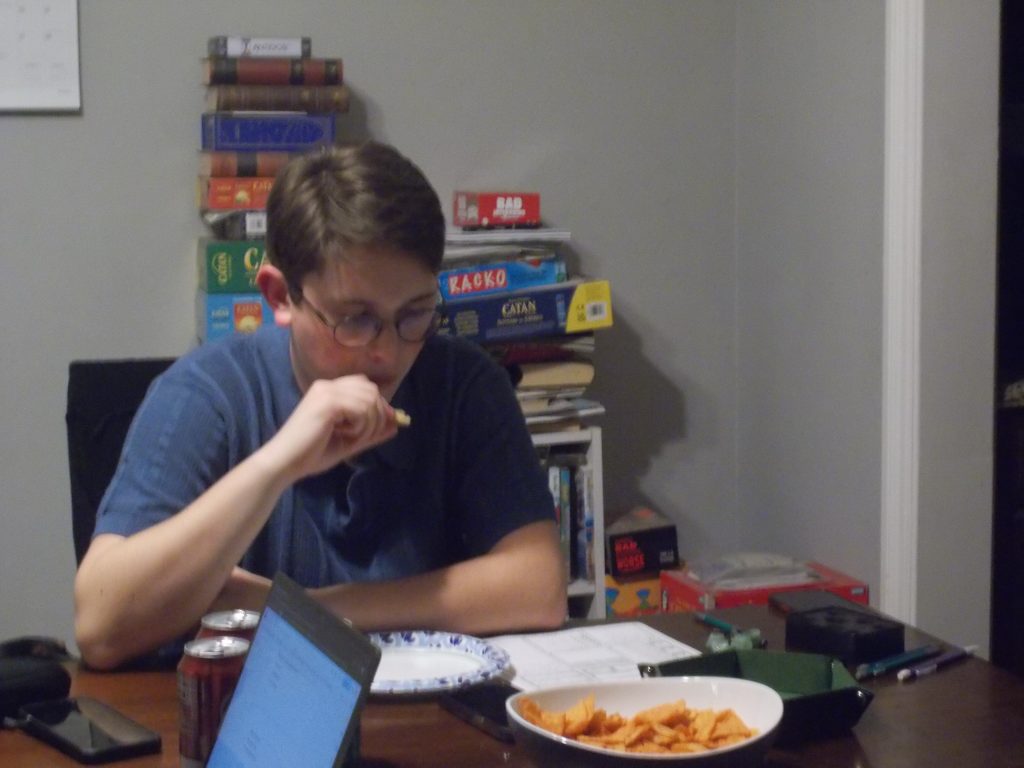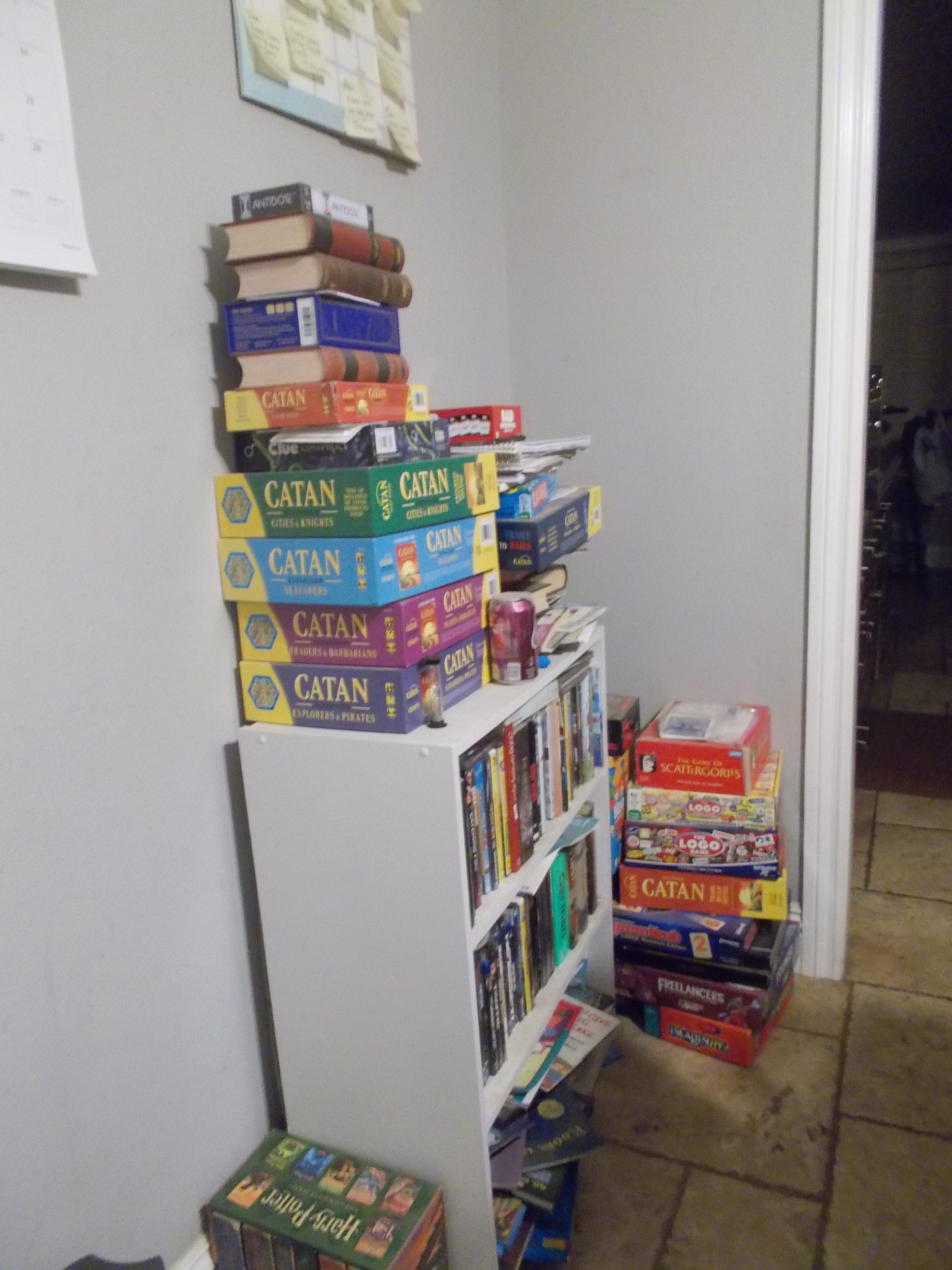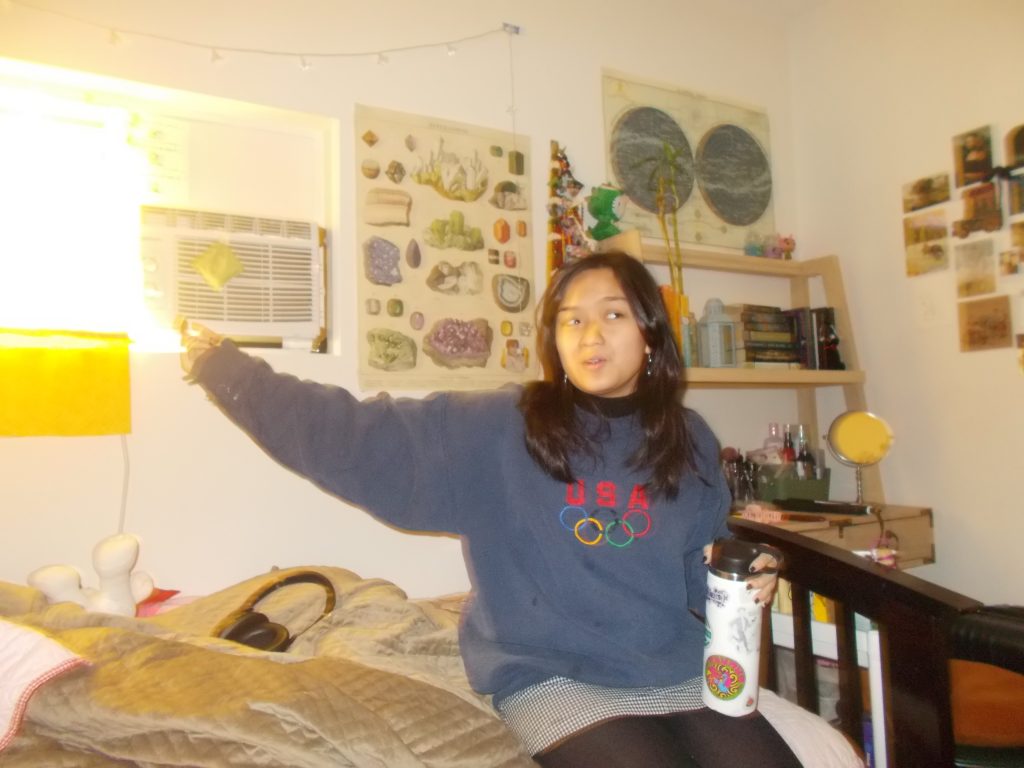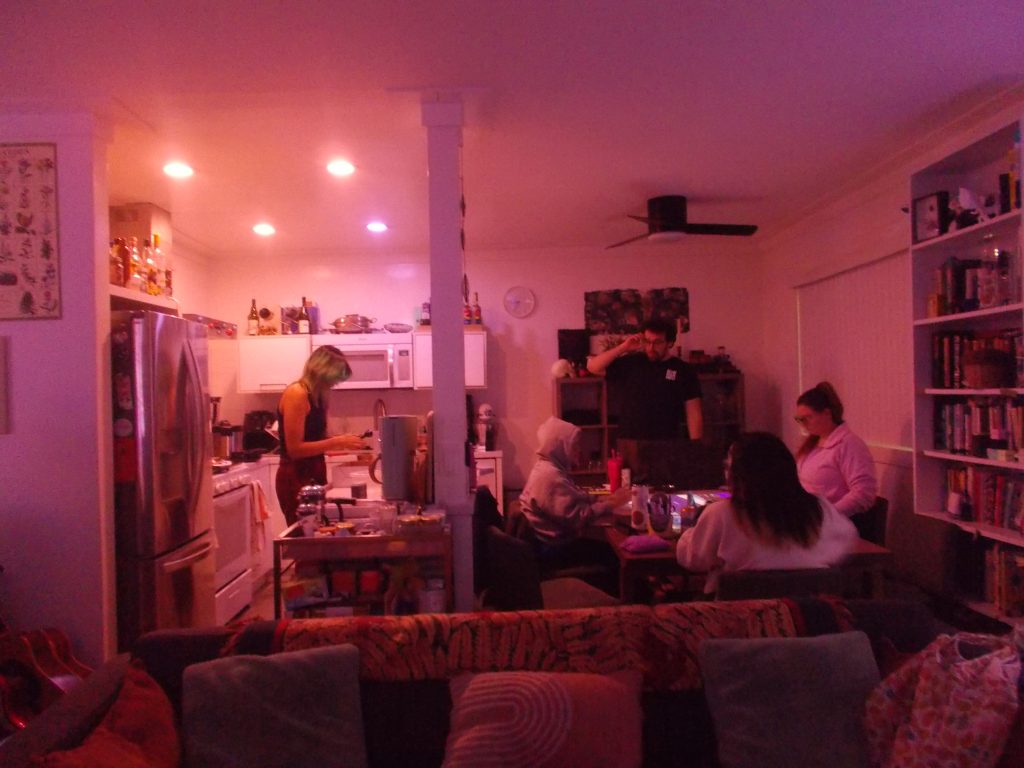I’m headed out to Chino Hills on a Friday night to gather with a group of 20-something-year-olds. The air is December crisp and I have a beautiful view of the sunset as I chase the full moon into the terrain of inland SoCal. I am greeted at the door by Nolan Parks, a crewing coordinator at Ming Entertainment and fluffly family dog, Apollo.
Every week, Parks gathers his D&D adventuring party at his home. The adventuring party is the name given to the group of players in a TTRPG campaign. Though there is enough soda, nachos and pizza in the kitchen, and laughter and harmless jokes at the table to have onlookers otherwise mistake this to be a chill-hang house party, as well.

Parks, 22, has been playing Dungeons and Dragons since he was 13 or 14. “I think my first TTRPG was probably D&D, my first introduction to that was my cousin. He’s a couple years older than I am, and he got really into D&D in high school with his friends. He ran a session for my brother and my younger brother and my mom and my other cousin, so we all kind of played together.”
We’re outside on the patio, as the rest of the party members gather and prep at the table. This communal gameplay is a mainstay in Parks’s home that boasts a massive collection of games. “My family’s actually really into board games, there’s a whole bookshelf right there, with lots of board games. That’s a third of what we have, the rest is in the garage. My mom was always really into getting us all together and hanging out as a family, so we did a lot of board games.” He is quick to reflect upon his younger self’s shortcomings and share a valuable lesson though.
“I was not the best child growing up. I was kind of a brat, so I, at first, resented playing them because I was forced to be with family, who maybe I was mad at at the moment, but as I’ve gotten older, looking back on that, I am really appreciative that we did do that because I got to spend that time with my family and bond with them in those ways. And plus, I love board games, so they’re pretty fun.”

These are some of the same themes discussed in Walsh’ research on the impact of D&D on mental health. She identifies 5 key themes as positive scaffolding for better mental health –
1) escapism
2) safe exploration
3) creative expression
4) social connection
5) routine
The paper’s findings suggest that D&D might be especially helpful for people dealing with social anxiety, loneliness, or those who need a safe space to explore aspects of their identity, and so it helps explain why D&D has been successfully used in therapeutic settings. The lessons learnt by the ten players studied by Walsh can be seen in many if not all D&D players, as is echoed by Parks’s experience, and also in fellow 22-year-old Pia Pelaez.
A Graduate Fellow at JusticeCorps Los Angeles, Pelaez recently joined an in-person group to play D&D every week in a new, yet maybe not all that new, effort. “Something I was reflecting on earlier is I think growing up, I did a lot of role play, but it was never like, role play tabletop playing games.” We are sitting in Pelaez’s bedroom, with walls plastered with their special interests. They are referring to the universal ability that we had as kids to play pretend and make-believe.
“Like I remember in elementary school, we had this game where we pretended to be [in] a beauty pageant where you would have each country. My friend was Miss Philippines, and then we had Miss Korea, and then Miss Ireland, but instead of it being Miss Universe, we would just battle each other. We would battle each other like literally, like physical fighting, like tag each other and everything. We would make alliances.”

While imagination and make-believe are part and parcel of improvisation, also built into TTRPGs is the adventuring party. Regular social connections like that in a post-college world for recent grads can be rare. Pelaez points out 3 friends they’ve had for 14 years – Jillian, Sarah and Carter. Having gone to the same high school as Jillian and Sarah, and being in the same girls scout troop as Carter, whilst growing up in a Catholic school environment in Ventura County cemented their relationship.
“But I think they’re also the type of friends, that it doesn’t matter how far away they are or how much time we’ve spent apart, when we come together, it’s like no time has passed.”
Pelaez is now making new friends as a grad through friends of old friends and revisiting old hobbies like role-playing. Unfortunately, not everyone’s school friendships made the pandemic cut. Parks shared, “I think the biggest driving point was probably during the COVID lockdown, I lost a lot of my high school friends. So that was my senior year of high school and I lost contact with, I think everyone except for the one person that I was dating. And that kind of, I don’t know, that really sucked, just to lose that many people that I was in contact with just because we didn’t have that connection of high school anymore.”
While Walsh’s research emphasizes that while D&D can have these beneficial effects, it shouldn’t replace professional mental health support when needed, I think it is important to note in nuance that we live in a far more individualized culture than in the past and it is important to create social support relationships through every form we can get – psychological and communal both included. The more circles one is supported by, the lesser chance they have of falling down.
